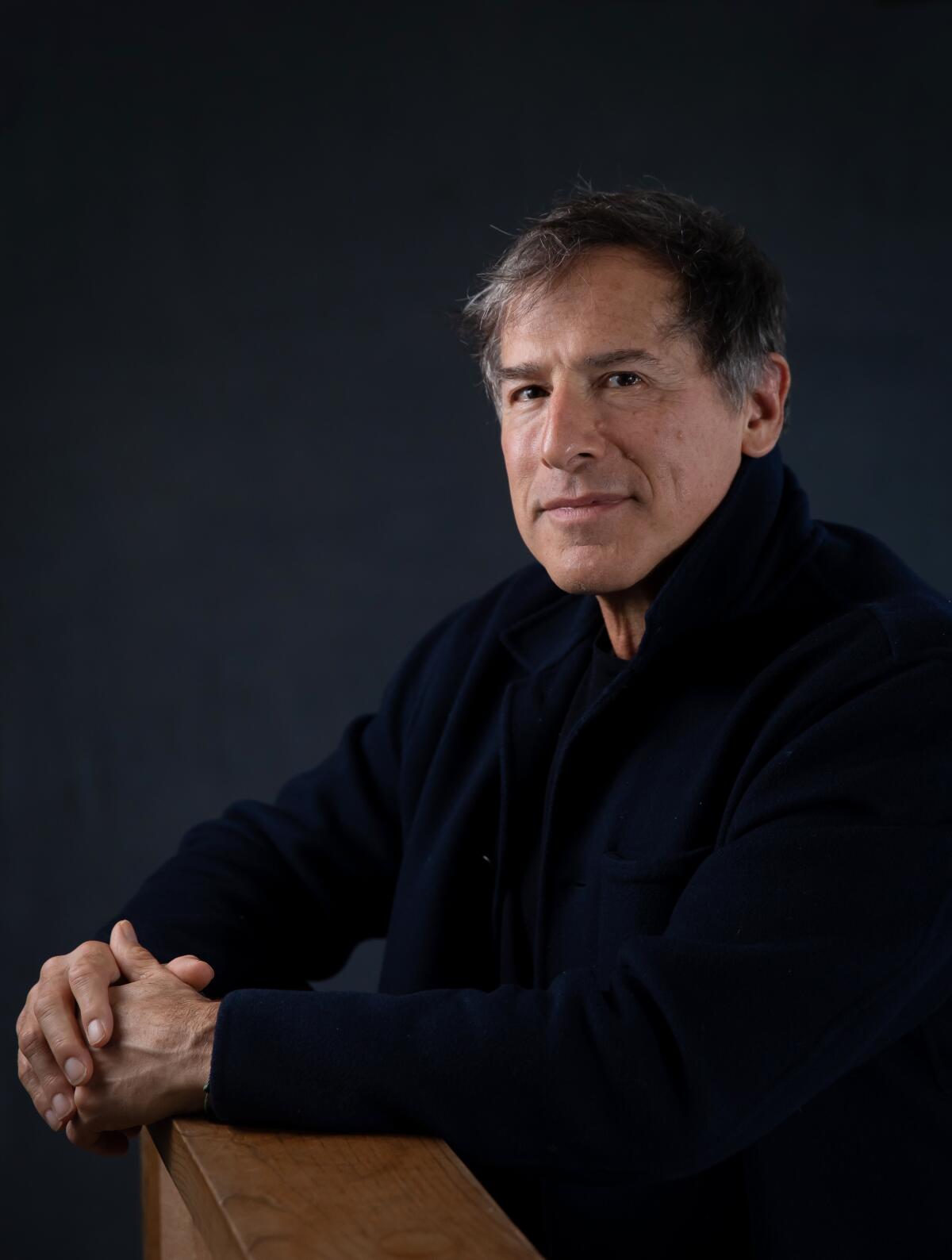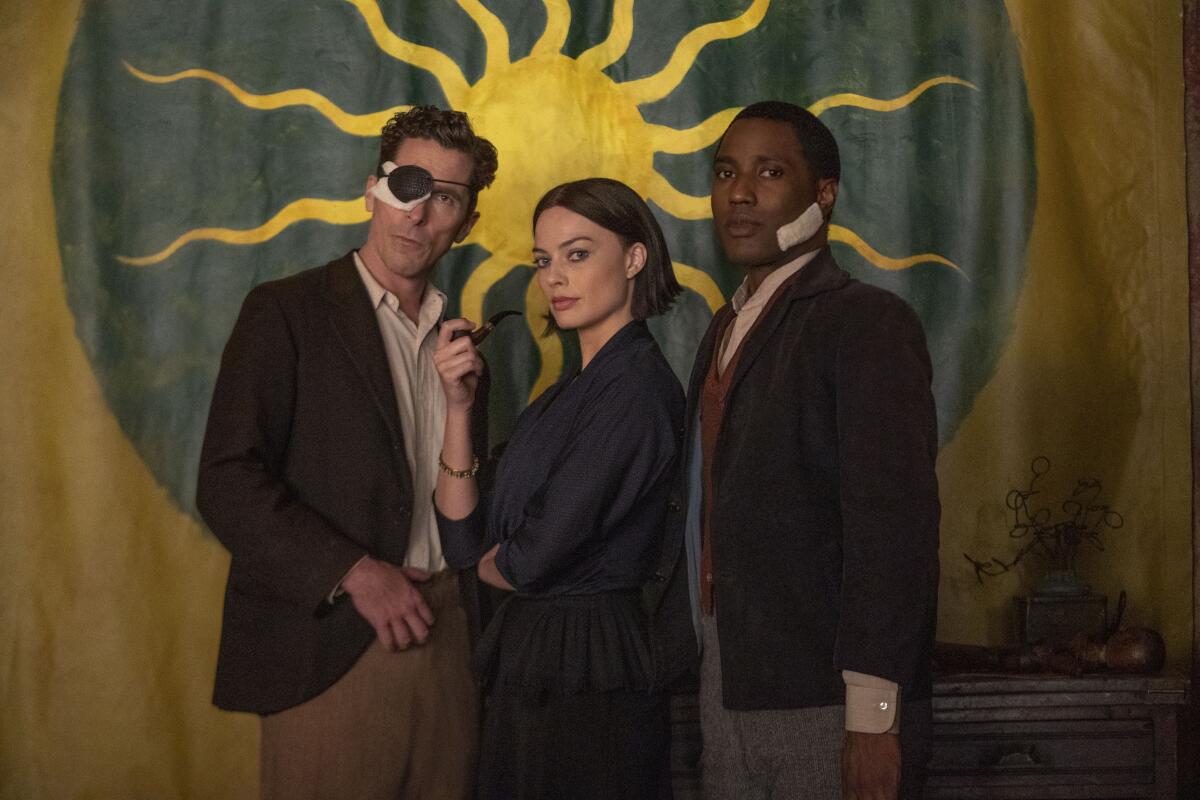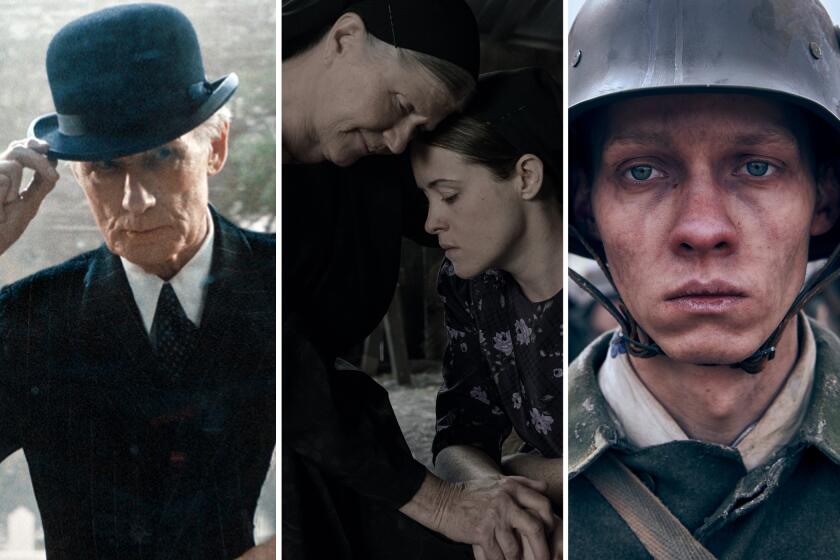David O. Russell writes of art, friendship and a history that should not be forgotten

“Amsterdam” starts with a guy named Burt (Christian Bale) who is so down on his luck in life and love that he has to be an optimist or he’ll die. He’s been through it — he sleeps on a cot in the doctor’s office where he practices medicine way uptown in New York City. He tries to invent medicines to get himself, with all his injuries from the First World War, through the day with a spring in his step. He’ll do anything as the doctor of last resort for all the lost causes who have been tossed aside and forgotten — most of them veterans like himself — whom he will sing with as part of his practice to lift their spirits.
He’s determined to live because he’s seen joy and freedom right after he saw horror and death, when he was with his two best friends after a catastrophic, idiotic global war that amounted to nothing but more trouble, more opportunities for businesses to make a fortune from destruction, more opportunities to grab power and do it all again on an even more horrific scale. He’s surrounded by hate, even in his wife’s own family because of his Jewish background, yet he remains foolishly determined to stay in that relationship with a wife who won’t love him but won’t let him go.
This was the origin of the story and screenplay that Christian and I talked about in a diner in Santa Monica over six years. For this character, there’s an incoming storm of huge, dark things closing in around him on a global scale, starting with the murder of the man who introduced him to his best friend, Harold, in France during the war. Burt and Harold share a closeness with an extraordinary woman named Valerie, whom they met when they were shot full of shrapnel as American soldiers during the war. This mysterious woman, fantastically imaginative, transforms their catastrophe and removes this metal shrapnel and turns it into sculptures of beauty and art. She has a tremendous sense of humor, and is inspired by music and reasons to live.

This is the world we all cultivated in “Amsterdam” over several years into a narrative that is, in the larger story, backing its way into something unimaginable but historically true. The premise was: Imagine you’ve been through one global, hatred-fueled catastrophe, so you could hardly begin to think that it would happen again, which is, in fact, happening unbeknownst to many, many Americans. Taking a stand is important, but so is keeping your sense of humor, which these three decidedly do throughout the film. This was the whole thing that motivated us — a history that none of us knew until we read about it and to imagine having to survive one senseless bloodiness, to recover, and now be finding your way to the vexing birth of another one — all while remaining kind of funny and kind of optimistic because of their dark senses of humor.
During the first round of the pandemic, which stopped our first preproduction in 2020, Christian spent time getting used to walking around in various period back braces that veterans would have worn, while he also practiced singing in French. Margot Robbie worked on her mid-Atlantic accent and spent time at home during the lockdown with early/mid-20th century cameras and film we sent to her to experiment with in character. She took extraordinary black-and-white photographs. John David Washington did extensive research and cooked up one of his own accents based on the facts of his character’s geography starting in Texas. Robert De Niro watched newsreels of Smedley Butler, the historic Marine general, a conservative who was offered bribes to become an autocrat. Mike Myers was learning all about glass eyes and bird-watching. The entire cast — each and every one of them were committed to the screenplay and getting into character.
Our BuzzMeter film experts predict the Oscar winners in 10 categories. Check out the consensus picks, close races and interesting narratives - and vote in the polls for every category.
I believe Arthur Miller said, “Art reminds us of what we have forgotten” in matters both of love and history. This is the ballad of these three close friends that were so fortunate to invite in those that wanted, so to speak, to play in our band, to become new voices at each turn of the adventure, each member of the cast like musicians who wanted to make a very specific music together.
More to Read
From the Oscars to the Emmys.
Get the Envelope newsletter for exclusive awards season coverage, behind-the-scenes stories from the Envelope podcast and columnist Glenn Whipp’s must-read analysis.
You may occasionally receive promotional content from the Los Angeles Times.











